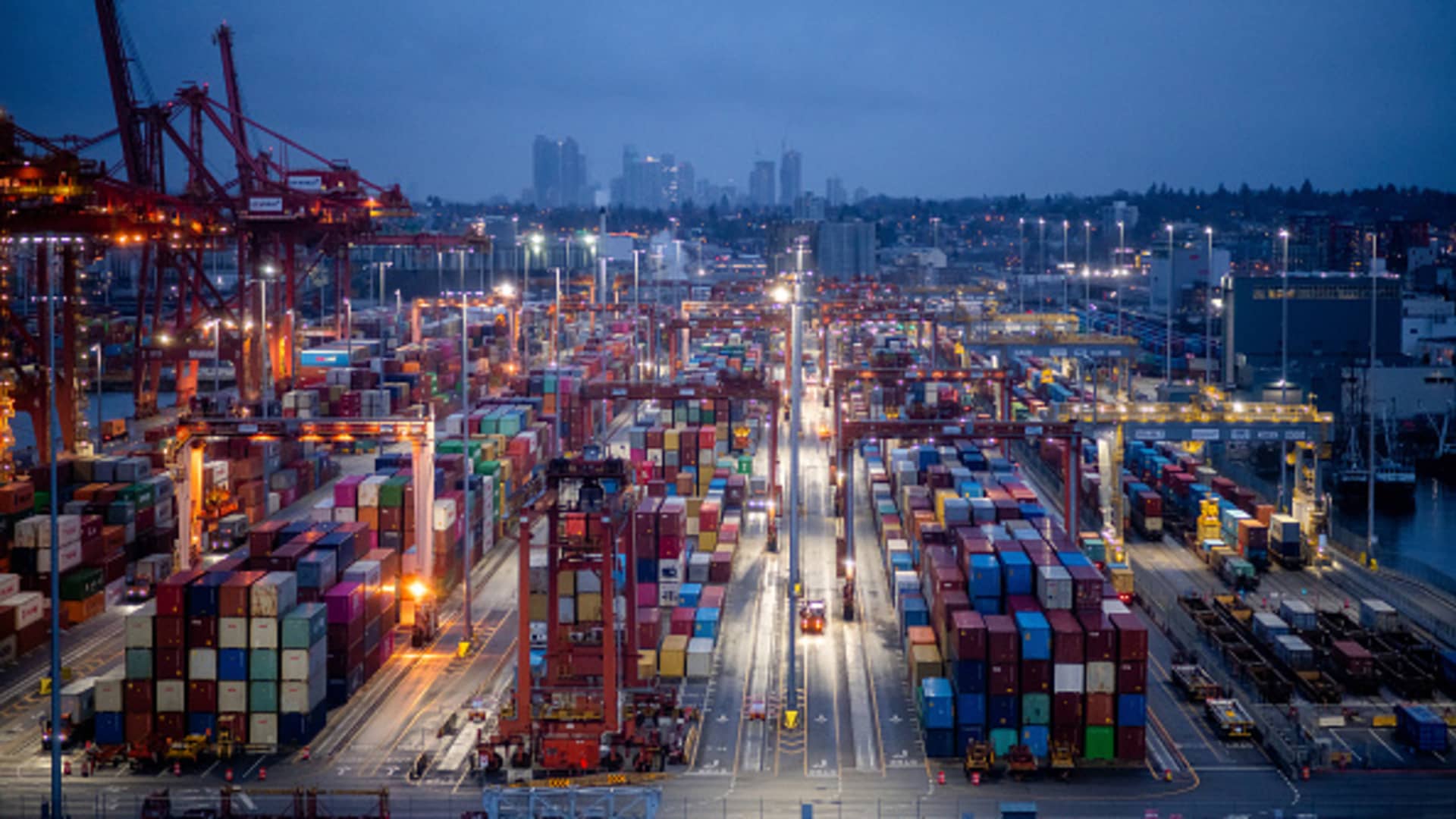After a recent landslide vote of union members, the ILWU Canada has served notice it plans to strike at the country’s West Coast ports starting on July 1. The Canadian Labor Code requires three days’ notice to announce a strike. The notice came on Wednesday.
Over 99% of ILWU Canada union workers critical for West Coast port operations, including in Vancouver and Prince Rupert, voted earlier this month in favor of supporting a strike if a labor deal was not reached. The vote, which took place on June 9-June 10, occurred during a 21-day cooling-off period between the British Columbia Maritime Employers Association, which represents port ownership, and ILWU Canada. Two mediators appointed by the Canadian government oversaw discussions that ran through the end of May.
ILWU Canada said in a statement on Wednesday that its goal is to protect jobs and claims the British Columbia Maritime Employers Association is demanding major concessions.
“Their only objective is to take away rights and conditions from longshore workers after having gorged themselves on record profits during the pandemic,” stated Rob Ashton, president of the ILWU Canada.
BCMEA countered in a statement that it has advanced multiple proposals and positions, “with the objective of making progress and achieving a fair deal at the table.”
Impact to U.S. economy and trade
The biggest port to be affected by this strike is the Port of Vancouver, the largest port in Canada. About 90% of the cargo that moves through the Port of Vancouver is Canadian trade, according to the Vancouver Fraser Port Authority. But there are potential impacts for U.S. trade. Approximately 15% of container trade moving through the Port of Vancouver is destined to or from the U.S., and approximately 2% of U.S. international laden imports arriving at West Coast ports each year move through the Port of Vancouver, according to the port authority.
Approximately two-thirds of containerized import volumes coming into the Port of Prince Rupert are destined for the U.S. market by rail, according to data from the port.
It is estimated that Canadian West Coast ports handle almost $225 billion worth of cargo a year, with items transported by rail including many consumer products, from apparel to electronics and home goods. The movement of grain vessels should not be impacted by the strike under the Canadian labor code.
Three Class 1 railways operate at these ports, CN, Canadian Pacific, and BNSF, a subsidiary of Berkshire Hathaway. The railroads could not be immediately reached for comment.
BCMEA’s statement said that it remains ready to re-engage with the labor union through the federal mediation process. “That includes voluntarily entering a mediation-arbitration process shaped by the parties that encourages continued dialogue and negotiations and only, if necessary, provides for a binding outcome via interest arbitration. So far, ILWU Canada has declined this binding mediation & arbitration proposal,” it said.
It is hoped that cruise vessels during the busy summer season will be serviced, but it is “unclear at this moment whether the ILWU will provide service to that segment of the industry,” the BCMEA said.
Another round of discussions is scheduled for Thursday.
Global supply chain has been returning to normal
The global supply chain has faced several new risks as peak shipping season that encompasses both back-to-school and holiday orders begins. The Panama Canal has been dealing with severe drought conditions, while the U.S. West Coast ports reached a tentative labor deal after weeks of tension between the U.S. ILWU and port management, but that deal will take months to ratify by rank and file union members.
“We are concerned about a potential strike and its impact at the Ports of Vancouver and Prince Rupert,” said Jon Gold, vice president of supply chain and customs policy at the National Retail Federation, in an email to CNBC. “Retailers have diversified their supply chains to include these critical ports in Canada. A strike would lead to delays and disruption as we enter the peak shipping season. We urge the parties to remain at the table and continue negotiations until a deal is in place.”
Overall, data shows that supply chain costs have come down significantly since the pandemic inflation shocks, and companies say that the supply chain has been returning closer to normal operating conditions despite the recent congestion on the West Coast due to ILWU and port management actions before the tentative deal was struck. During a CNBC interview on Wednesday, General Mills CEO Jeff Harmening described the supply chain as “getting healthier over the last three months” and he said the number of disruptions are similar to pre-pandemic levels.
But logistics managers tell CNBC that news of the Canadian port worker strike is a blow to operations. “We will pre-pull as many containers as possible before the weekend,” said Paul Brashier, vice president of drayage and intermodal at ITS Logistics. “We will then take those containers that were bound for rail and transload the products onto dry vans.”
Brashier said these Canadian ports are vital to Midwest manufacturers and the auto industry, as most transpacific freight enters at these points prior to interlining to rail and going to inland rail ramps in Chicago and other major markets.

